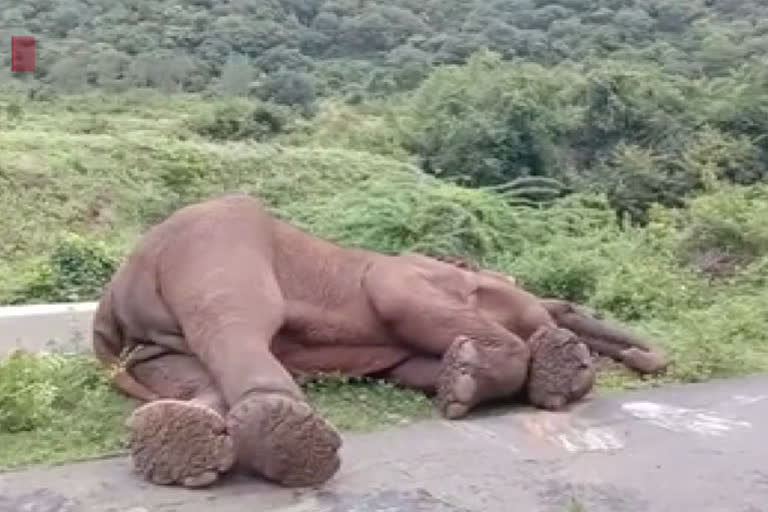Chennai (Tamil Nadu): As is a known fact, nature's equilibrium can be maintained in a beneficial way only if wildlife is protected carefully. In Tamil Nadu however, among several things long taken for granted, are the issues of man-animal conflict and poaching of wild animals.
It has been a common practice among farmers to resort to poisoning, net trapping and shooting in order to shoo away the invading wild animals from their fields. In fact, this harmful practice has triggered the extinction of several animals on a large scale and loss of nature's equilibrium.
Of late, animals such as elephants, leopards, lions, deer, monkeys, wild dogs, and even birds are being killed in large numbers in reserve forests. Expressing concern over this trend, wildlife activists say wild animals are killed to extract and make commercial use of tusk, skin, meat, fangs, honey, lacquer and silk. They also claim that in this racket, the officials' apathy has a bigger role, and stress on the need for educating and enlightening the farmers on the importance of wild animals.
According to government data, in the past three months, the farmers' practice of using poison and net traps in the Nilgiris reserve forests cost nine leopards their lives. Moreover, in the forests of Coimbatore and the Nilgiris, 29 elephants were killed in hunting and shooting in 2020. In the Mudumalai sanctuary, two tigers, five wild dogs and one wild boar were poisoned to death.
Speaking about the issue, Q. Ashoka Chakravarthi, Assistant Professor of Environmental Science in Tiruchi and wildlife researcher, said the human-wildlife conflict is, of late, on the rise. If it is not brought under check, ultimately mankind as well wildlife will be put on the road to extinction.
Read:Injured elephant dies in Tamil Nadu
The actual problem has originated from the human habit of encroaching upon animal habitats. Particularly, elephants have lost their habitat and are pushed into the situation in which they come calling at the human residential places. Likewise, the birds also fall prey to human aggression, he said, adding that the deaths of animals are on the increase in forests, showing the officials' nonchalance over the issue. Even if the tormentors of animals are booked, no great headway is made in the cases, he remarked.
"Why do the animals enter into human habitats? We, human beings, are responsible. In our technical parlance, it's called anthropogenic activity. It means man-made reason. But we are blaming animals," Chakravarthi said.
"What is the solution to this problem? We can create a strict enforcement mechanism; an anti-poaching move. There are scores of graduates unemployed, particularly zoology graduates. They can be given temporary employment in protective zones like wildlife sanctuaries," he added.
